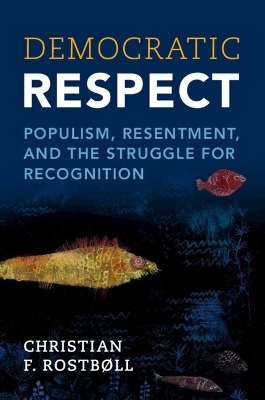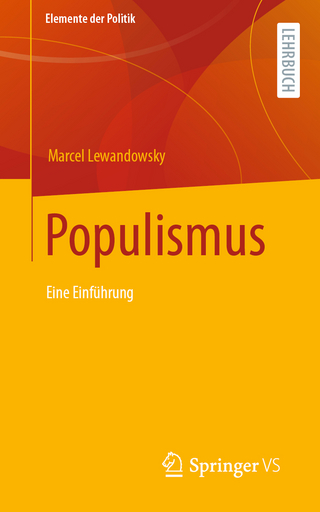
Democratic Respect
Populism, Resentment, and the Struggle for Recognition
Seiten
2023
Cambridge University Press (Verlag)
978-1-009-34087-8 (ISBN)
Cambridge University Press (Verlag)
978-1-009-34087-8 (ISBN)
A new analysis of the struggle over the meaning of respect and recognition in modern democracy that characterizes the global rise of populism. It will interest students and scholars of populism and democratic theory in comparative politics, political philosophy and sociology.
Commentators often interpret the resentment of supporters of populism as blindly emotional and unconnected to facts and principles. Democratic Respect argues instead that we should approach the populist politics of resentment as a struggle for recognition based on moral experiences that are intimately connected to people's factual and moral beliefs. By associating populist resentment with alleged violations of democratic principles, we can discuss what citizens and governments owe one another in terms of recognition and respect. Populism advances a unique interpretation of democracy and recognition, which Rostbøll confronts with the notion of democratic respect. How democracy should recognize the people is shown to be connected to debates over the meaning and value of democratic procedures, rights, majority rule, compromise, and public deliberation. The book builds a bridge between empirical research and philosophical analysis, while providing insights relevant to a public grappling with the challenges many democracies face today.
Commentators often interpret the resentment of supporters of populism as blindly emotional and unconnected to facts and principles. Democratic Respect argues instead that we should approach the populist politics of resentment as a struggle for recognition based on moral experiences that are intimately connected to people's factual and moral beliefs. By associating populist resentment with alleged violations of democratic principles, we can discuss what citizens and governments owe one another in terms of recognition and respect. Populism advances a unique interpretation of democracy and recognition, which Rostbøll confronts with the notion of democratic respect. How democracy should recognize the people is shown to be connected to debates over the meaning and value of democratic procedures, rights, majority rule, compromise, and public deliberation. The book builds a bridge between empirical research and philosophical analysis, while providing insights relevant to a public grappling with the challenges many democracies face today.
Christian F. Rostbøll is Professor of Political Theory at University of Copenhagen and he holds a Ph.D. from Columbia University. He is author of Deliberative Freedom (2008) and numerous articles on political and democratic theory, as well as co-editor of Compromise and Disagreement in Contemporary Political Theory (2018).
Introduction: recognition of the people; 1. Recognition and the politics of resentment; 2. Respect, esteem, and solidarity; 3. Rights and the populist claim for recognition; 4. Procedures, outcomes, or identification? 5. Respecting disagreement; 6. Publicity and correcting democracy.
| Erscheinungsdatum | 13.03.2023 |
|---|---|
| Zusatzinfo | Worked examples or Exercises |
| Verlagsort | Cambridge |
| Sprache | englisch |
| Maße | 151 x 228 mm |
| Gewicht | 380 g |
| Themenwelt | Sozialwissenschaften ► Politik / Verwaltung ► Vergleichende Politikwissenschaften |
| ISBN-10 | 1-009-34087-5 / 1009340875 |
| ISBN-13 | 978-1-009-34087-8 / 9781009340878 |
| Zustand | Neuware |
| Haben Sie eine Frage zum Produkt? |
Mehr entdecken
aus dem Bereich
aus dem Bereich
Geschichte, Parteistruktur, Radikalisierung
Buch | Softcover (2024)
UTB (Verlag)
27,90 €


